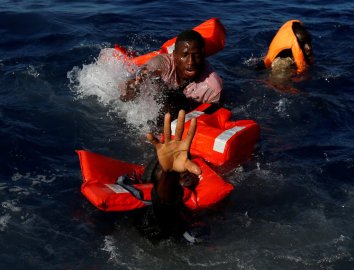Understanding Smuggler Myths in Mediterranean Migrant Crossings
The Mediterranean Sea has long been a focal point for migrants seeking safety and a better life in Europe. Unfortunately, this journey is riddled with misinformation, primarily propagated by smugglers who prey on vulnerable individuals. In this article, we aim to debunk some of the most prevalent myths surrounding the Mediterranean crossings and shed light on the realities that migrants face.
Myth 1: Smugglers Are Trusted Guides
Many migrants believe that smugglers are reliable guides who will safely escort them across the Mediterranean. In reality, this could not be further from the truth. Smugglers are often more interested in profit than in the safety of their clients. They may provide inadequate boats, overcrowded conditions, and little to no safety equipment. It’s essential for migrants to understand that relying on smugglers can lead to dire consequences, including capsizing and drowning.
Myth 2: There Are No Risks Involved
The journey across the Mediterranean is fraught with peril. Every year, thousands of individuals risk their lives attempting this crossing, and many do not survive. The myth that the journey is safe is perpetuated by smugglers seeking to lure more clients. In reality, migrants face risks such as:
Migrants must be made aware of these risks to make informed decisions about their journeys.
Myth 3: Smugglers Can Guarantee Entry
Another common misconception is that smugglers can guarantee safe passage and entry into destination countries. This is misleading. While smugglers may have knowledge of routes and border crossings, they cannot control the actions of law enforcement. Many migrants find themselves intercepted by authorities and sent back to their countries of origin or placed in detention.
Myth 4: All Migrants Will Reach Their Destination
The journey across the Mediterranean does not guarantee successful arrival. Many individuals are lost at sea or face detention upon arrival. The myth that all migrants will reach their desired destination further contributes to the desperation that leads people to undertake this journey. It is crucial to inform potential migrants of the very real possibility that they may not reach their intended destination.
Myth 5: Smugglers Are the Only Option
Some individuals believe that hiring a smuggler is the only way to escape dire circumstances. However, there are legal alternatives and avenues for migration available, such as asylum applications or humanitarian parole programs. Understanding these options can help migrants avoid the dangerous paths promoted by smugglers.
The Role of Governments and NGOs
As the myths surrounding Mediterranean crossings continue to proliferate, it is vital for governments and non-governmental organizations (NGOs) to provide accurate information to potential migrants. By promoting safe migration practices and providing resources for legal avenues, authorities can help reduce reliance on smugglers.
Additionally, programs like the USCIS office locator can assist individuals in finding the right resources for immigration processing. Keeping up-to-date with Portugal immigration news or immigration news in Colorado can also provide valuable insights into legal pathways.
Combating Misinformation
To combat the spread of misinformation, it is essential to have clear communication channels. Migrants should be educated about the risks associated with smugglers and the realities of their journeys. This includes informing them about the dangers of illegal crossings and the potential for arrest, as well as providing updates on current immigration policies and reform news.
For instance, recent advance parole news can shed light on temporary relief options available for those facing deportation, while updates on programs like DACA can help young migrants understand their options.
Conclusion
The Mediterranean crossing is a complex issue filled with myths that can lead to potentially life-threatening situations. By debunking these myths and providing accurate information, we can empower migrants to make informed choices about their journeys. The focus should remain on promoting safe and legal migration avenues rather than the dangerous options offered by smugglers.
In a world where misinformation can have fatal consequences, it is crucial to prioritize education, awareness, and support for those seeking a better life. The journey is fraught with challenges, but with the right information, migrants can navigate it more safely.










